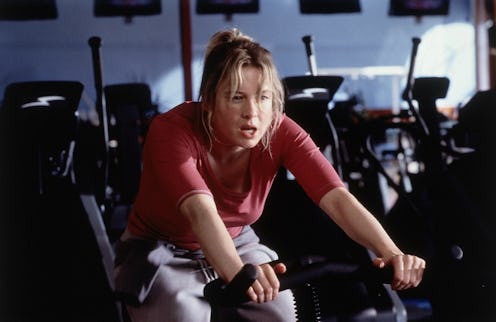TV & Movies
Literally No One Wanted To Cast Renée Zellweger As Bridget Jones
And yet she totally nailed it.

Of all of Renée Zellweger’s iconic roles, Bridget Jones — the self-proclaimed “wanton sex goddess with a very bad man between her thighs” — is arguably her most beloved. It’s also the part that no one wanted her to have.
The story of how Bridget Jones’s Diary was made is laid out in Scott Meslow’s new book, From Hollywood with Love: The Rise and Fall (and Rise Again) of the Romantic Comedy. And apparently, finding the right actor to play Bridget was “a Herculean challenge,” which took the filmmakers a full two years.
Director Sharon Maguire cited the love for the movie’s source material — the book of the same name by Helen Fielding — as the main sticking point. “Nearly everybody who worked on the film had a different idea of who Bridget [was],” Maguire told Meslow. “Everybody who has read the book knows Bridget. Either it’s themselves or it’s their friend.” The laundry list of actors originally considered for the role included Toni Collette, Helena Bonham Carter, Cate Blanchett, Emily Watson, Cameron Diaz, Rachel Weisz, and Kate Winslet. Zellweger’s name didn’t even come up in early conversations.
As Zellweger remembers it, when her agent suggested her name, Working Title executive Eric Fellner told him, “That’s the dumbest idea I’ve ever heard and don’t ever come to me with any more of your stupid ideas.”
Regardless, the she went in to read for the part — and according to Maguire, she nailed it. “I figured that when she walked in the room, we’d know,” she told Meslow. “She did walk in the room, and we did know.”
But even after Zellweger was given the part, many were skeptical. Meslow writes that British tabloids decried the casting as “clunking, Hollywood idiocy.” The papers even took quotes from Fielding out of context, to make it seem like the author was also upset. “I felt really bad for [Zellweger],” Fielding told Meslow. “It must have been awful for her.”
The filmmakers publicly defended Zellweger, but in private, several members of the cast and creative team also expressed concerns. Hugh Grant, who played Daniel Cleaver, told Meslow: “I can’t pretend that I didn’t slightly raise an eyebrow myself when her name was brought up.” Even Maguire had doubts: “I’ll confess now: I was a bit worried,” she said. “But we’re able to laugh about it now.”
With the pressure on, Zellweger threw herself into preparing for the role. Not only did she work with voice coach Barbara Berkery, who famously helped Gwyneth Paltrow prepare for Shakespeare in Love, but she also went undercover in the publicity department at Picador UK (the original publishers of Bridget Jones’s Diary). She sat through meetings, answered phone calls, and pitched Picador’s books to news outlets — all the things Bridget would actually do at her job. She even used the name “Bridget” during her time there.
The hard work paid off. When the film finally came out, critics and audiences alike fell for Zellweger, and the once-scoffed-at actor garnered multiple accolades for the film, including nominations for Best Actress at the Oscars, BAFTAs, SAG Awards, and the Golden Globes. The actor’s tumultuous journey is, if anything, quintessential Bridget. As Meslow writes, “The real lesson of Bridget’s decades-long history is that the character is both compelling and resilient enough to stand up to any hypothetical scenario — a valuable commodity in an entertainment industry that increasingly prefers to double down over making a new bet.”